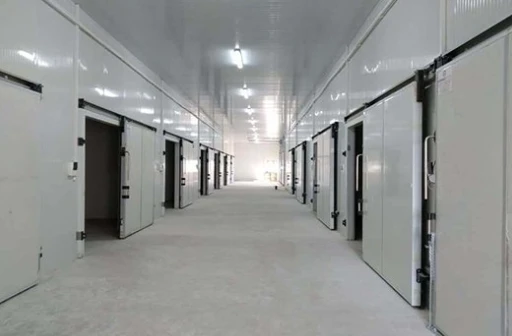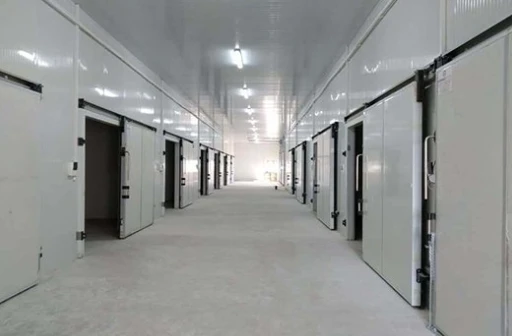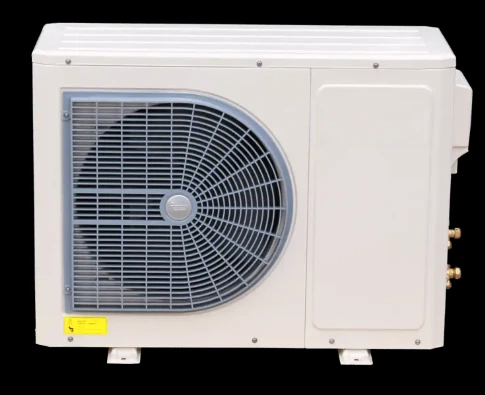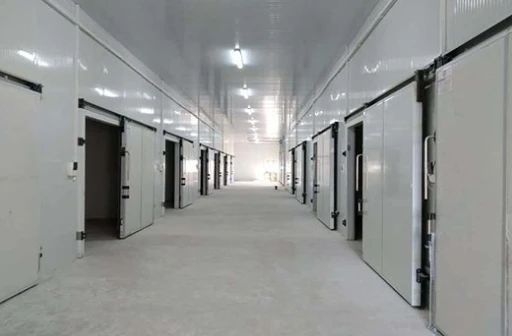From Basic Cooling to Smart Technology Condensing Units
The refrigeration and HVAC industry has undergone significant advancements, with condensing units playing a pivotal role in modern cooling systems. From early mechanical designs to today’s intelligent air-cooled condensing unit systems, the technology has evolved to enhance efficiency, reliability, and environmental sustainability. A well-matched condensing unit and evaporator coil ensures optimal performance, reducing energy consumption while maintaining precise temperature control. This article explores the transformative journey of condensing units, highlighting key innovations and their impact on commercial and industrial applications.
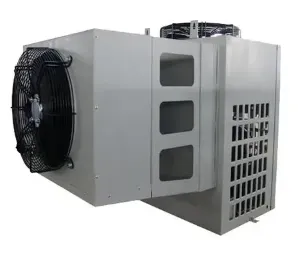
The Early Days of Basic Condensing Units
The first-generation condensing units relied on simple mechanical compression and basic refrigerant cycles. These systems were bulky, energy-intensive, and required frequent maintenance. Early air-cooled condensing unit models utilized basic fan systems to dissipate heat, often struggling with efficiency in high-temperature environments. The pairing of a condensing unit and evaporator coil was initially rudimentary, with limited optimization for varying cooling demands. Despite their inefficiencies, these early designs laid the foundation for future innovations in refrigeration technology.
Key Limitations of Early Systems
- High energy consumption due to inefficient compressors.
- Limited temperature control precision.
- Frequent breakdowns from inadequate heat dissipation.
Transition to Improved Designs
- Introduction of more durable materials.
- Better airflow management in air-cooled condensing unitmodels.Enhanced
- compatibility between condensing unit and evaporator coilfor improved heat exchange.
Technological Advancements in Air-Cooled Condensing Units
Modern air-cooled condensing unit systems incorporate advanced compressors, variable-speed fans, and eco-friendly refrigerants. These improvements have drastically reduced energy consumption while increasing cooling capacity. The integration of smart controls allows for real-time adjustments, optimizing performance based on ambient conditions. Additionally, the precise matching of a condensing unit and evaporator coil ensures maximum efficiency, reducing operational costs in commercial refrigeration and HVAC applications.
Energy Efficiency Innovations
- Inverter-driven compressors for reduced power usage.
- Enhanced fin-and-tube designs for better heat transfer.
- Low-noise fan technology for quieter operation.
Smart Features and Automation
- IoT-enabled monitoring for predictive maintenance.
- Adaptive cooling based on load requirements.
- Remote diagnostics for troubleshooting condensing units.
The Critical Role of Condensing Unit and Evaporator Coil Pairing
A properly matched condensing unit and evaporator coil is essential for system efficiency. Mismatched components lead to excessive energy use, poor cooling performance, and premature wear. Modern designs ensure seamless compatibility, with manufacturers providing optimized configurations for different applications. Whether for cold storage, food processing, or HVAC systems, the right pairing enhances longevity and reduces operational costs.
Factors Affecting Compatibility
- Refrigerant type and flow rate.
- Coil material and fin density.
- System load and ambient conditions.
Benefits of Optimal Pairing
- Lower energy consumption.
- Extended equipment lifespan.
- Consistent temperature control.
Future Trends in Condensing Unit Technology
The future of condensing units lies in sustainability and smart automation. Emerging trends include the use of natural refrigerants, AI-driven performance optimization, and modular designs for easy scalability. Air-cooled condensing unit systems are expected to become even more compact and efficient, while advancements in condensing unit and evaporator coil integration will further enhance system responsiveness.
Eco-Friendly Refrigerants
- Transition to low-GWP (Global Warming Potential) refrigerants.
- Compliance with international environmental regulations.
AI and Machine Learning Integration
- Predictive maintenance through data analytics.
- Self-regulating systems for dynamic cooling demands.
FAQs About Condensing Unit
What is the primary function of a condensing unit?
A kondensatsiya birligi compresses refrigerant gas, removes heat, and converts it back into liquid form, facilitating the cooling process in refrigeration and HVAC systems.
Why choose an air-cooled condensing unit over water-cooled?
Air-cooled condensing units are easier to install, require less maintenance, and are more cost-effective for smaller to medium-scale applications compared to water-cooled systems.
How does a condensing unit and evaporator coil work together?
The kondensatsiya birligi releases heat, while the evaporator coil absorbs it, creating a continuous refrigeration cycle that maintains desired temperatures efficiently.
What maintenance does an air-cooled condensing unit need?
Regular cleaning of coils, checking refrigerant levels, and inspecting electrical components ensure optimal performance of an air-cooled condensing unit.
Are smart condensing units worth the investment?
Yes, smart condensing units optimize energy use, reduce downtime through predictive maintenance, and offer remote monitoring, making them ideal for modern commercial applications.
Shijiazhuang Xuexiang Refrigeration Euquipment Co.,Ltd committed to providing efficient, energy-saving, and environmentally friendly cold storage solutions to ensure the safe storage and transportation of global food, pharmaceutical and other products, and promote the sustainable development of the cold chain industry.
From basic mechanical systems to intelligent, eco-friendly solutions, condensing units have evolved significantly. The advancements in air-cooled condensing unit technology and the precise engineering of condensing unit and evaporator coil systems have revolutionized refrigeration efficiency. As the industry moves toward smarter, greener solutions, businesses can expect even greater performance and sustainability in the years ahead.
Modern condensing units are designed to minimize energy consumption and reduce environmental impact. The use of eco-friendly refrigerants and energy-efficient components ensures that these units operate with minimal carbon footprint. Additionally, advancements in control systems and sensors enable precise monitoring and adjustment of operational parameters, further enhancing efficiency and reliability.
-
Tube Ice Machine Cost EffectiveYangiliklarSep.04,2025
-
IQF Freezer Locks in FreshnessYangiliklarSep.04,2025
-
Condensers Reject Heat EfficientlyYangiliklarSep.04,2025
-
Cold Room Door DurabilityYangiliklarSep.04,2025
-
Chiller Reduces Energy CostsYangiliklarSep.04,2025
-
Big Block Ice Machine Energy ConsumptionYangiliklarSep.04,2025













































































































